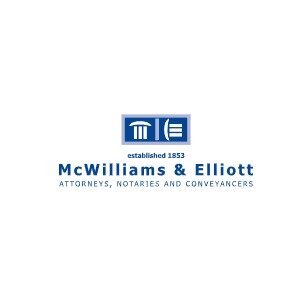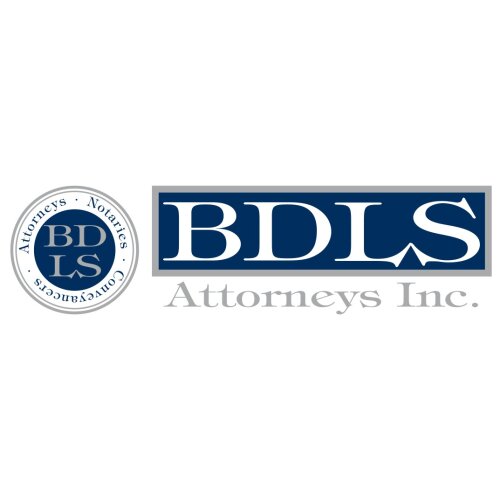Best Bankruptcy & Debt Lawyers in Port Elizabeth
Share your needs with us, get contacted by law firms.
Free. Takes 2 min.
List of the best lawyers in Port Elizabeth, South Africa
South Africa Bankruptcy & Debt Legal Articles
Browse our 1 legal article about Bankruptcy & Debt in South Africa written by expert lawyers.
- Debt Collectors in South Africa: Harassment and Verification
- You can demand proof of the debt, the collector’s authority, and a full breakdown before you pay. Do not acknowledge the debt or make part-payments until you verify it. Harassment is illegal. You may set contact times, request written-only communication, and lodge complaints with the Council for Debt Collectors or... Read more →
About Bankruptcy & Debt Law in Port Elizabeth, South Africa
The field of Bankruptcy and Debt law in Port Elizabeth, similar to the rest of South Africa, is primarily governed by procedures listed in the Insolvency Act, 24 of 1936 along with rules set out by the National Credit Act 34 of 2005. It provides for mechanisms in which the assets of an insolvent individual or business can be distributed to creditors, and for the rehabilitation of insolvent individuals or businesses.
Why You May Need a Lawyer
In a condition where you are submerged in debt and unable to meet your financial obligations, a bankruptcy and debt law lawyer can provide needed advice and guidance. They can help assess the gravity of your financial situation, discuss available options, guide you through the complex processes of either insolvency or bankruptcy, propose debt restructuring or payment plans to creditors, protect your assets from repossession, and stop harassment from credit agencies. Legal advice ensures your legal rights as a debtor are protected and the best possible options are taken.
Local Laws Overview
In Port Elizabeth, South Africa, the Insolvency Act takes precedence. It dictates that a debtor may only be declared insolvent by the court and not by a creditor, which also prevents reckless insolvency filings. Additionally, the National Credit Act protects consumers from blindly entering credit agreements by requiring providers to ensure consumers fully understand agreements and are capable of meeting obligations. Such provisions work towards avoiding over-indebtedness and consequent insolvency.
Frequently Asked Questions
1. Who can file for bankruptcy in Port Elizabeth, South Africa?
Bankruptcy is not limited to businesses. Both individuals and companies can declare bankruptcy if they are unable to pay their debts.
2. What is the difference between insolvency and bankruptcy?
In the South African context, insolvency typically refers to businesses and corporations that are unable to pay their debts, while bankruptcy often refers to individual debt situations.
3. What is sequestration in terms of bankruptcy?
Sequestration is the legal proceeding in South Africa where an individual, whether voluntarily or by court order, is declared bankrupt and their property is divided among creditors to offset debts.
4. Can I protect my assets during insolvency and bankruptcy?
Protecting some assets depends on several factors, such as the type of bankruptcy filed, the category of asset, and specific laws in South Africa. This is where legal counsel is invaluable.
5. How long does a bankruptcy status last?
In South Africa, after your estate has been sequestrated, you are considered to be insolvent until your estate has been fully administered and you have been rehabilitated. This process typically takes several years.
Additional Resources
In addition to a lawyer, you can consult governmental bodies like the National Credit Regulator or the South African Reserve Bank for general advice. Moreover, non-profit organizations such as DebtBusters can provide free advice and assist in managing and restructuring debt.
Next Steps
If you are in need of legal assistance with bankruptcy or debt in Port Elizabeth, South Africa, consider seeking the help of a legal professional. They can evaluate your case with discretion and sensitivity, and ensure that you understand your rights as well as potential debt solutions. Those facing bankruptcy should promptly find an attorney, to avoid negative consequences, like additional fees or levy implications. Moreover, creating a plan to deal with outstanding debts will help you in the long run.
Lawzana helps you find the best lawyers and law firms in Port Elizabeth through a curated and pre-screened list of qualified legal professionals. Our platform offers rankings and detailed profiles of attorneys and law firms, allowing you to compare based on practice areas, including Bankruptcy & Debt, experience, and client feedback.
Each profile includes a description of the firm's areas of practice, client reviews, team members and partners, year of establishment, spoken languages, office locations, contact information, social media presence, and any published articles or resources. Most firms on our platform speak English and are experienced in both local and international legal matters.
Get a quote from top-rated law firms in Port Elizabeth, South Africa — quickly, securely, and without unnecessary hassle.
Disclaimer:
The information provided on this page is for general informational purposes only and does not constitute legal advice. While we strive to ensure the accuracy and relevance of the content, legal information may change over time, and interpretations of the law can vary. You should always consult with a qualified legal professional for advice specific to your situation.
We disclaim all liability for actions taken or not taken based on the content of this page. If you believe any information is incorrect or outdated, please contact us, and we will review and update it where appropriate.
Browse bankruptcy & debt law firms by service in Port Elizabeth, South Africa
Port Elizabeth, South Africa Attorneys in related practice areas.








